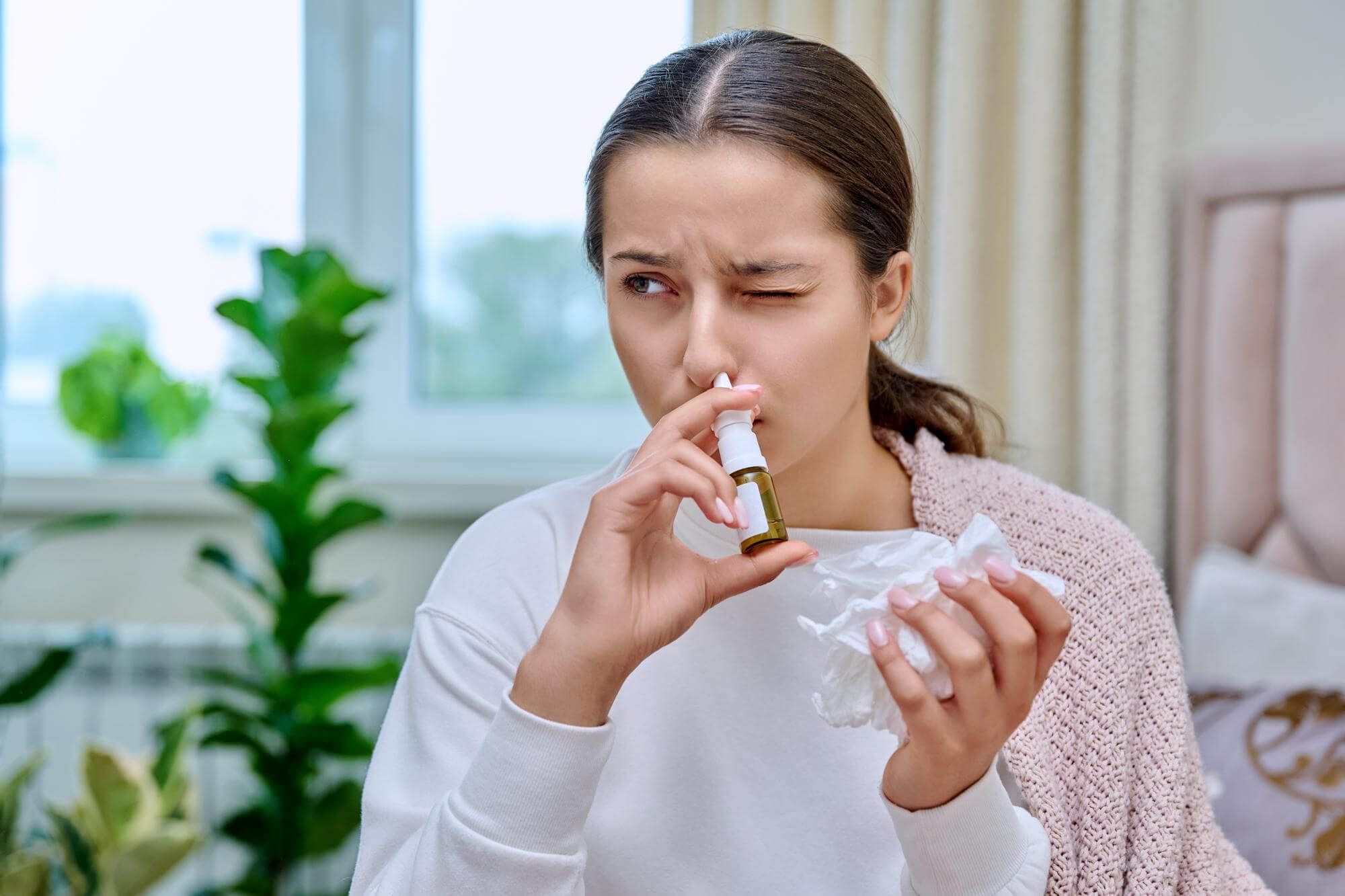Overview of the best nasal sprays for allergies


Irina Makarova
There are many options for nasal sprays designed to relieve allergy symptoms. In this review, we'll look at the different types of sprays, how they work, and offer a ranking of the best products on the market.
Types of allergy sprays
Antihistamine sprays, such as Tizin Allergy and Levocabastine, relieve allergy symptoms by blocking the action of histamine, a substance that is released in the body during an allergic reaction.
Hormone sprays, such as Flixonaz and Nasonex, contain corticosteroids that reduce inflammation and swelling of the nasal mucosa caused by allergic rhinitis.
Vasoconstrictor sprays such as Xylometazoline and Nasivin narrow the blood vessels in the nose, thereby reducing swelling and nasal congestion.
How Allergy Nasal Spray Works
- Antihistamine sprays work by blocking histamine receptors in the nasal cavity, which prevents an allergic reaction from developing. This alleviates symptoms such as itching, sneezing, and swelling.
- Hormonal sprays, or corticosteroids, work by reducing inflammation and swelling of the nasal mucosa, resulting in a reduction in the symptoms of allergic rhinitis.
- Vasoconstrictor sprays work by constricting the blood vessels in the nose, which helps reduce swelling and nasal congestion caused by an allergic reaction.
Rating the best nasal sprays for allergies

- "Flixonase" is an inexpensive and effective hormonal spray that is actively used by adults and children over 4 years of age to treat symptoms of allergic rhinitis.
- "Nazonex" is a hormonal spray of the latest generation. It is highly effective and well tolerated by patients of all age groups, including children.
- "Tizin Allergy" is an antihistamine spray that effectively deals with the symptoms of allergic runny nose. It is affordable and easy to use.
- "Xylometazoline" is a vasoconstrictor spray that eases breathing by reducing swelling and nasal congestion. It is suitable for adults and children over 6 years of age.
How to use a nasal spray for allergies correctly
- Before using the spray, make sure your nasal passages are clean. Adults and children over the age of 12 are recommended to rinse their noses with a saline solution.
- The process of using the spray involves several steps: take the spray by the base, insert the spray into the nasal opening, inject and repeat the procedure for the other nasal opening.
- The frequency and duration of spray application depends on the type of drug and the symptoms. It is important to follow the manufacturer's instructions and your doctor's recommendations.
Possible side effects and contraindications
- Common side effects of allergy sprays can include irritation and dryness in the nose, headaches, and an unpleasant taste in the mouth.
- Allergy sprays may be contraindicated if you are hypersensitive to the components, if you are pregnant and breastfeeding, and in children under a certain age that is specified in the instructions.
In conclusion, nasal sprays for allergies are an effective remedy that can significantly alleviate the symptoms of allergic rhinitis. It is important to choose the right drug, considering its type, possible side effects and contraindications. Remember, the best choice is one made based on the recommendations of an experienced allergist.
New materials
Popular Articles
We recommend reading
Contact us in the Contact Us section to ask questions, offer ideas, or for more information about our allergy resource.
Our articles are your trusted source of allergy knowledge. Learn how to make life with allergic reactions easier on our specialized portal.
©
Lechenie-Allergii.com. All rights reserved.
© Lechenie-Allergii.com. All rights reserved.
The information on this site is for informational purposes only and is not a substitute for professional medical advice. We recommend consulting with qualified medical professionals for accurate information and advice.
 English
English  Українська
Українська  Русский
Русский 









